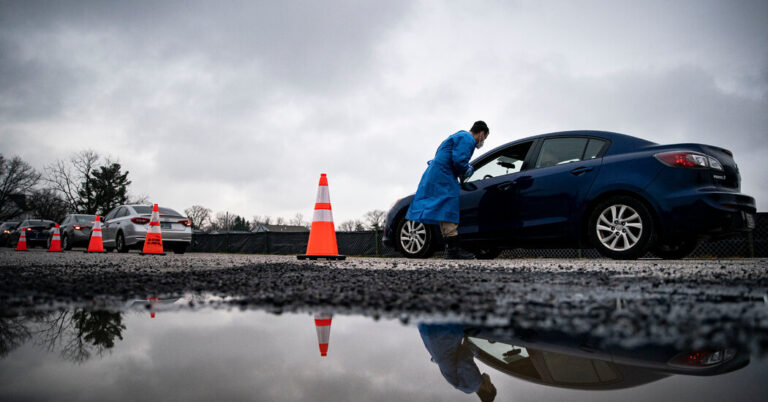Venice to Charge Day Trippers an Entry Fee to Discourage Overcrowding
On its busiest days, Venice swells with tourists who clog the city’s narrow streets, leave behind piles of garbage and often frustrate locals. So the canal-crossed city is fighting back.
Starting on April 25, and for another 29 days scattered mostly around national holidays and weekends through mid-July, day trippers to the historic part of Venice will have to pay 5 euros, about $5.40, a measure that city officials hope will encourage people to come during less busy times.
All visitors to Venice will also have to register their presence in the city on the specified days, filling out an online form that will help officials gauge how many visitors to expect and strategize about how to handle them.
“It’s not about making money — the costs of the operation are higher than what we’re going to make,” Mayor Luigi Brugnaro told reporters on Thursday as Venetian officials kicked off a global advertising campaign. Instead, said Michele Zuin, the city official in charge of budgeting and economics, the aim is “to better manage the numbers of tourists and disincentivize mass tourism, which is what creates, let’s say, the difficulty of living in this city.”
Visitors staying overnight in Venice will not have to pay, nor will those traveling there to work, to visit relatives or to study. Anyone born in the city is also exempt, as are minors under 14. And Mr. Brugnaro said there would be no cap on the number of visitors allowed in.
Rising improbably from the waters of the Venetian lagoon, the city is as delicate as it is beautiful, and in recent decades it has struggled to protect a uniqueness that is threatened by climate change and rising seas, as well as by mass tourism.
To counter that figurative and literal erosion, the city has installed giant gates at four mouths of the lagoon to keep seawater out and pavements dry, and banned cruise ships from the inner canals. Those efforts helped keep Venice off UNESCO’s list of “World Heritage in Danger” even after experts at the agency raised concerns last year that Italy had not done enough to protect the city.
From 1976 until this year, Italy had allocated funds to help safeguard Venice, and on Thursday, Mr. Brugnaro chided the country’s central government for not renewing that funding. He said he had asked the government for €1.5 billion for the next 10 years to help preserve a city with a unique heritage that requires continuous maintenance.
“We need that financing,” he said.
Occasionally, days have been so busy with tourists that the city has had to limit some streets to one-way pedestrian traffic.
Simone Venturini, the city official in charge of tourism, said of the new measures, “We will be the first city in the world to know exactly how many tourists will come to Venice that day — whether exempt or paying, they have to register.”
After registering on the website, visitors will receive a QR code — valid from 8:30 a.m. to 4 p.m. — that they will be required to show when entering the city at points like the train station, Piazzale Roma, the municipal parking lot, some beachfront locations and St. Mark’s Square. There will also be spot checks throughout the city.
For now, anyone arriving in Venice without a QR code will be allowed to buy it at the last minute, either on a smartphone or at kiosks set up leading up to the access points, officials said.
Transgressors will face fines of €50 to €300 plus a €10 fee, Mr. Zuin said.
The initiative is being introduced on a trial basis so that city officials can see whether the system works and how it can be improved, he said. In the future, the entry fee could be calibrated — “a sliding scale of prices,” Mayor Brugnaro said — depending on the day.
“We’re asking for collaboration,” Mr. Brugnaro said, adding that the data accumulated during the 29 days would be made public. He said that officials from other cities around the world had contacted his administration to find out more about the access system.
So far, more than 50,000 people have registered through the website — about a third of them paying for one-day visits, officials said.
“The entire world wants to come to Venice,” Mr. Venturini said at the introduction of the advertising campaign, which included a video message of the mayor speaking in various languages using A.I.-generated speech translation.
In the video, Mayor Brugnaro apologizes for any inconvenience that the new system might create. But, he said, “the city has to be protected.”
Check out our Latest News and Follow us at Facebook
Original Source







